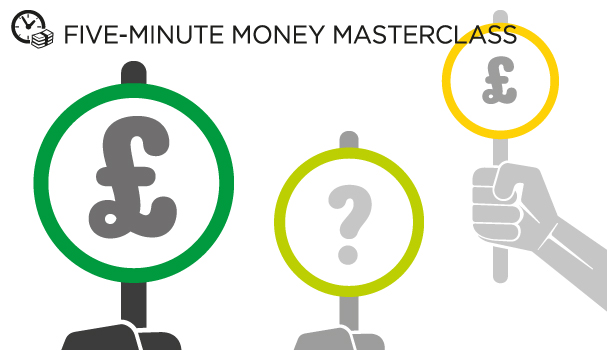Needless to say, there are a number of factors to consider when it comes to pricing your franchise, and these will vary depending on the nature of one’s enterprise. However, there are some simple steps that can be taken to make the process of price-setting all the more straightforward, and ensure that both parties are left satisfied, at least from a financial perspective
 Break it all down
Break it all down
It is not beyond the realms of possibility that a franchisee will query the price you are quoting, so it pays to put yourself in a position where you can lay out exactly what they are paying for. “A potential franchisee should never be afraid to say to a franchisor ‘Please break it down – what do I get for my money?’” says Pip Wilkins, head of operations for the British Franchise Association (bfa). “And a franchisor should be able to say ‘£5,000 of that is us recouping advertising costs, there is £5,000 attached to the training of you for your two-week course to get you up and running, this is for the launch marketing, this is for stock, materials, equipment, uniforms – that sort of stuff.’” Sandra Venables, franchise consultant at Green Frog Consultancy, adds: “You should clearly be able to demonstrate what the upfront fee has been used for and you should be able to provide an itemised breakdown of the franchise package including the cost of the licence.”
 Offer a fair rate of return
Offer a fair rate of return
All said and done, a franchisor and franchisee want to be safe in the knowledge that their partnership will deliver them both a healthy profit. Nevertheless, as far as setting the initial fee is concerned, the onus is on the franchisor to give the franchisee some peace of mind. “An ethical franchisor shouldn’t make money out of the initial franchise fee – it very much is there to cover the set-up for a franchisee,” says Wilkins. Meanwhile, the on-going fee should also benefit each side equally. “The fees have got to allow both parties to be able to make a profit,” says Bill Pegram, marketing director for franchise consultancy The Franchising Centre. “If the fees aren’t high enough and the franchisee makes all the profit, then the franchisor isn’t going to have the resources to train and support them properly. If it is too skewed the other way and the franchisor makes all the profit, then the franchisees are going to fail.”
 Talk to the experts
Talk to the experts
There are a number of agencies on hand who can not only assess whether your business is ripe for franchising, but equally how much is could reasonably cost to franchise. Working out these costs will essentially make life a lot easier when it comes to setting a price. “From a franchisor’s perspective, one of the key things is to make sure they take proper accredited advice,” explains Wilkins. “We have a full list of franchise consultants that are people who would sit down with a franchise business and work out what their costs should be.” And Pegram says that taking on such advice can spot any glaring errors in the first instance. “Our first task is to make sure that the proposed franchise is going to work for the franchisor and the franchisees,” he says, “If we do that financial model and it doesn’t work, then it is best everybody knows before we go any further.”
 Work out the best way to charge
Work out the best way to charge
Assuming that the initial franchise fee merely serves to cover the franchisor’s own costs, any profit made from the franchise agreement will arise from the on-going fees charged to the franchisee. The most popular model in this regard sees the franchisor collecting a percentage of the franchisee’s turnover on a regular basis, but there are other two other options available: product mark-up and flat fees. The franchisor should therefore be in a position to work out which of the three models suits them best before moving forward. “If you manufacture tools and you then sell the tools to a franchisee for a mark-up, you make your money there,” explains Wilkins. “We would always be slightly more wary of a fixed fee business because you are paying regardless of whether you are making it. But in exceptional circumstances, cash-based businesses will be a fixed fee because otherwise the franchisee can pocket lots of money as opposed to declaring it through the business.”
 Think ahead
Think ahead
If a franchisor adopts the ‘percentage of turnover’ pricing model – as is common – vouching for the possibility of their franchisees achieving sizeable profits should play a large part in their considerations, and not necessarily for selfish reasons. “You do actually come across instances where mature companies get franchisees that really start to make serious bucks,” says Pegram. “The franchisee starts to say ‘in the early days when I was paying 10%, my turnover was £100,000, but now I am turning over £1m and I am paying you £100,000. I can’t quite really see where the value is.” Equally, a franchisee won’t take kindly to the fee going up alongside their turnover. “Just saying ‘all the others seem to be charging about 10% so we’ll charge 10%’ isn’t a professional way of going about the exercise,” Pegram adds. “Once you have 20 franchisees on board, good luck going back to them and saying ‘next time we renew your agreement, we are going to be increasing your fees by 20%’. So you really need to get it right in the first place.” ![]()
Share via:

 Break it all down
Break it all down Offer a fair rate of return
Offer a fair rate of return Talk to the experts
Talk to the experts Work out the best way to charge
Work out the best way to charge Think ahead
Think ahead






































